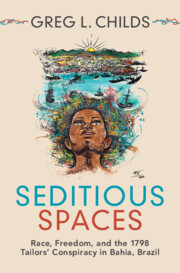Select Bibliography
Published online by Cambridge University Press: 06 March 2025
- Type
- Chapter
- Information
- Seditious SpacesRace, Freedom, and the 1798 Tailors' Conspiracy in Bahia, Brazil, pp. 225 - 236Publisher: Cambridge University PressPrint publication year: 2025

